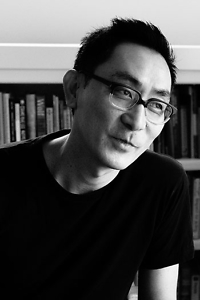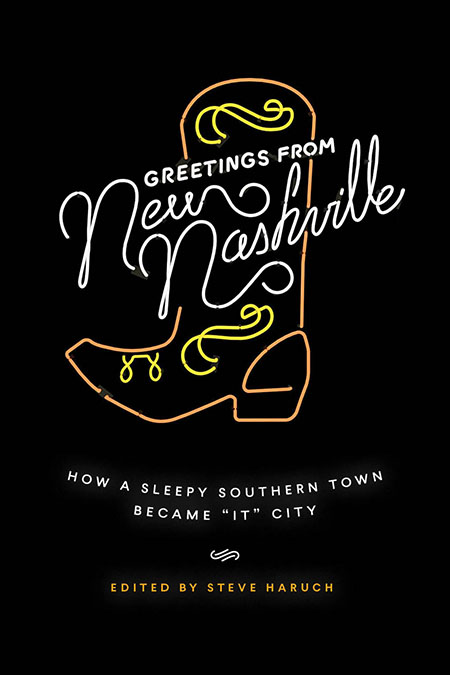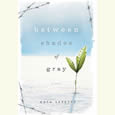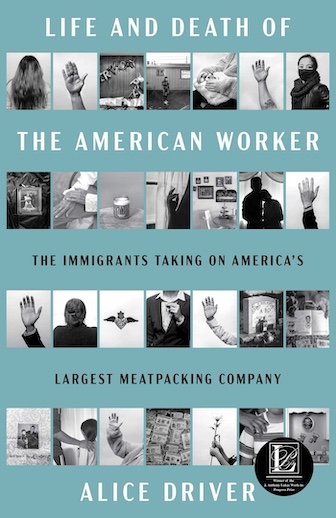The Comedy of Empathy
Pulitzer Prize-winning novelist Andrew Sean Greer talks with Chapter 16 about finding his way into a story
Andrew Sean Greer’s Pulitzer Prize-winning novel, Less, is hilarious. Its humor is especially striking when you consider that, with only a few tweaks to the premise, the book might sound like an existential handwringer.

On the brink of turning fifty, novelist Arthur Less is traveling around the world to get over heartache. Freddy, Arthur’s lover of almost a decade, is marrying another man. To distract himself from the upcoming wedding, from his own upcoming birthday, and from his last novel’s failure, Arthur accepts invitations to a range of literary events around the world. His travels abroad often plunge him headfirst into “those writerly humiliations planned by the universe to suck at the bones of minor artists like him.”
Despite the humiliations his protagonist faces, Greer never uses the satirical elements of the novel to shy away from writing with real feeling. Instead, these elements expand Arthur Less’s ability to empathize with others and, as a result, the reader’s ability to empathize with him.
In addition to winning the Pulitzer Prize in fiction, Less was named one of the ten best books of 2017 by The Washington Post and was a New York Times notable book. Greer is also the recipient of a Guggenheim Fellowship and a National Endowment for the Arts grant and is the author of five other books of fiction. He answered questions from Chapter 16 via email.
Chapter 16: Congratulations on winning the Pulitzer Prize! I immediately thought about the scene where Robert, Less’s poet lover, receives the call informing him of, yep, winning the Pulitzer. Robert’s first reaction is to tell Less that he’s been pronouncing “Pulitzer” wrong all these years. Having won the award yourself now, is there anything about this scene you’d change?
Andrew Sean Greer: Yes! In the novel, Arthur comes into the bedroom to see Robert sitting with the phone in his hand, astounded. He says the Pulitzer committee had just called. BUT THEY DON’T CALL! Turns out you find out because you finally look at your phone and there are hundreds of text messages. But it’s more fun this way.
Chapter 16: Less is, among other things, a nuanced, hilarious examination of an author’s self-doubt. How do you cope with doubts in your own writing life?
Greer: Doubt is essential to the writing life. If you only had arrogance, you’d write a book that’s all ego-and there are plenty of them, and they’re all intolerable. If literature means that you are making something that has never existed before, then you’re going to hit some roadblocks along the way. If you enter it thinking, “I’m a genius, I’ll just write a page a day and turn it in!” well, either you or your reader will be disappointed. I find I have to reach a point where I want to throw the whole thing away. Only then do I finally figure out what’s wrong and fix it.
Chapter 16: Arthur is struggling with his own novel, which features a white, gay, middle-aged male on a walking tour of San Francisco. At one point, he admits that his protagonist has become “a gorgon of Caucasian male ego, snake headed, pacing through his novel and turning each sentence to stone.” Of course, Arthur Less is himself a white, gay, middle-aged male pacing through the novel, but your sentences sing. How did you prevent Arthur from gorgon-ing everything up?
Greer: By making gentle fun of him. By removing some of his privilege, putting him in uncomfortable circumstances-for instance, other countries—in which he is powerless to discover the “right” thing to do. Defanged, he’s more relatable and, I hope, more lovable.
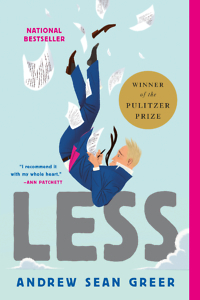 Chapter 16: As many have noted, this book is very, very funny. Yet its humor is never a shield—instead it lets a keen vulnerability into the novel. Did you turn to any other comic novels—or other forms of comedy—as models?
Chapter 16: As many have noted, this book is very, very funny. Yet its humor is never a shield—instead it lets a keen vulnerability into the novel. Did you turn to any other comic novels—or other forms of comedy—as models?
Greer: I looked very closely at Nabokov’s Pnin, Updike’s Bech books, Muriel Spark, P.G. Wodehouse, and dozens of others. I never like the comedy of cruelty—it’s just so lazy. Comedy of empathy is harder to do but gets you so much further.
Chapter 16: So much of humor depends on timing. But I was also thinking about time more generally while reading this novel. Arthur Less confronts time in a less reality-bending manner than some of your other protagonists (the aging-backward narrator in The Confessions of Max Tivoli, for example, or the time-hopping heroine in The Impossible Lives of Greta Wells), but the surreality of his personal experience with time is still present, particularly in Less’s growing realization of his own age. Are there any ways your past novels prepared you for writing Less?
Greer: Nice transition! Well, when I first imagined this book it was a not-funny book where the past was layered over the present. You know, how if your friend told you once that he used to live on that blue house on the corner, every time you walk by you hear your friend saying, “I lived in that blue house.” For me, I don’t remember it. I hear them saying it. That happens all day long, and was the original premise of this novel. Of course I threw that version away, but you can feel it, I think, in how the past washes over Arthur all the time. I remember after Max Tivoli when people would ask me what my books are about, I would answer, “Love and the passage of time.” Three books later, and it turns out I was right.
Chapter 16: One of my favorite things about Less is the way the slow reveal of the identity of the narrator is an unexpected plot point of the novel. As you were writing the book, did the voice of the narrator slowly reveal itself to you, as well?
Greer: Once I threw away old versions and began this one, the voice was there all along. I find the hardest part about writing a novel is finding the “way in” to the story. For this one, it was the narrative voice and it took me over a year to find it. A very frustrating and depressing process. But once I found that voice, there was never any doubt about how the book would end.
Chapter 16: At the beginning of Less, Arthur Less has been tasked with interviewing a famous science-fiction author. “What does one ever ask an author except: ‘How?'” the narrator wonders. I’m going to try to phrase this as a non-how question, even though that’s totally what it is: were there any lessons you learned in realizing Less?
Greer: I seem to have to write as if nobody is ever going to read this. So it doesn’t matter what elements of my life I use, or of others’ lives, or what jokes I tell. I have to convince myself it’s fine to do exactly as I like, and to enjoy myself. But that takes a lot of doing for someone as anxious as I am.
Chapter 16: In addition to being a comic novel, Less is a love story. And not the kind of love story that seemed to want me to stop believing in love (a bit of a rarity in literary fiction!). Any other love stories you might recommend?
Greer: When I first read Marcel Proust, I felt like adults had been lying to me all this time and that someone had at last told me the truth about love. It’s rather sad and honest, I have to admit. You could pick up the excerpt Swann in Love from the first volume. But you have to read Love in the Time of Cholera. Perhaps the greatest love story ever written?
[This interview originally appeared on June 4, 2018.]

Lee Conell’s debut collection Subcortical recently won The Story Prize Spotlight Award. Her fiction has appeared in places like Kenyon Review, Guernica, Glimmer Train, and American Short Fiction. She earned her M.F.A. at Vanderbilt University and lives in Nashville.
